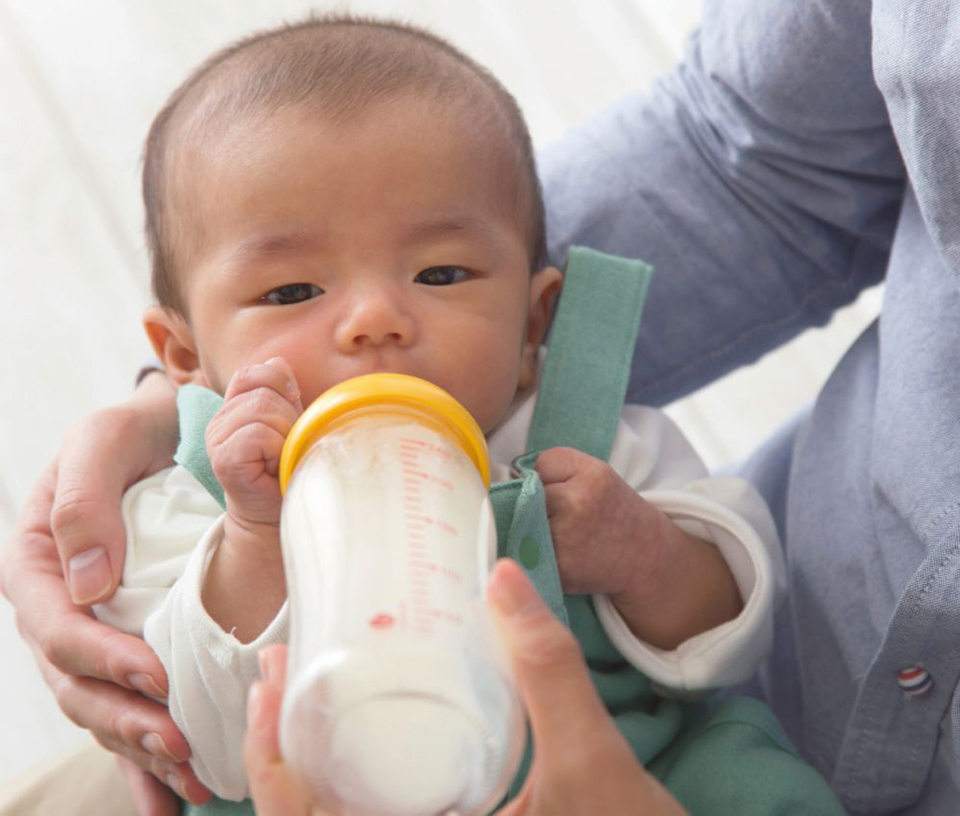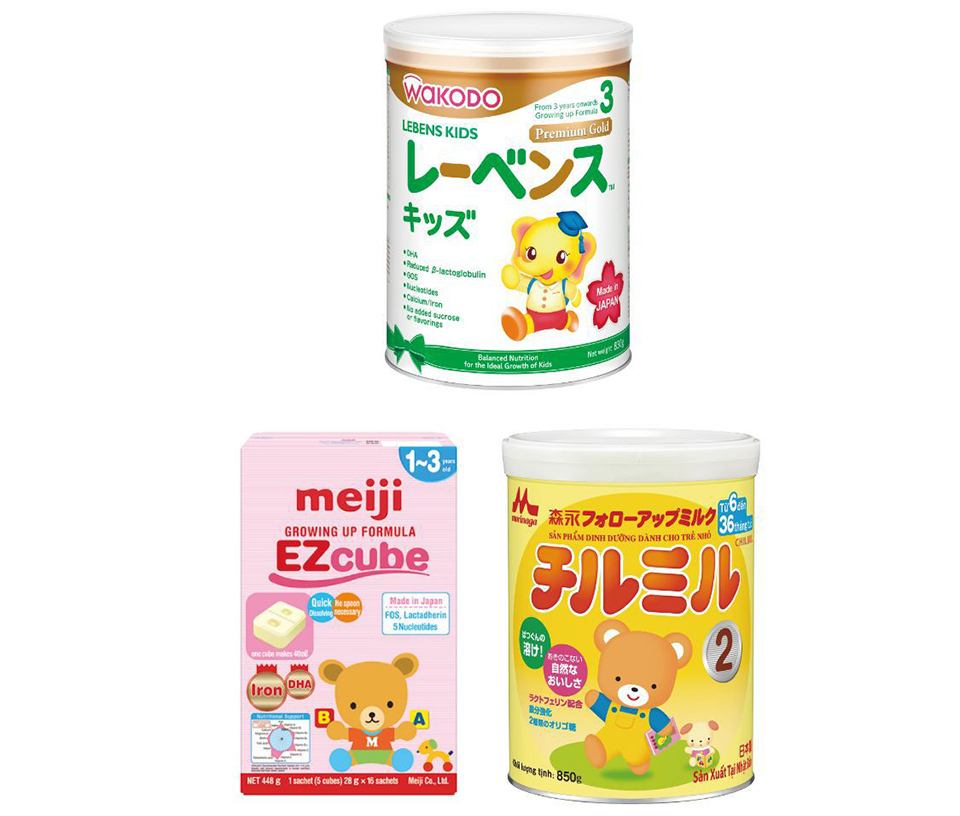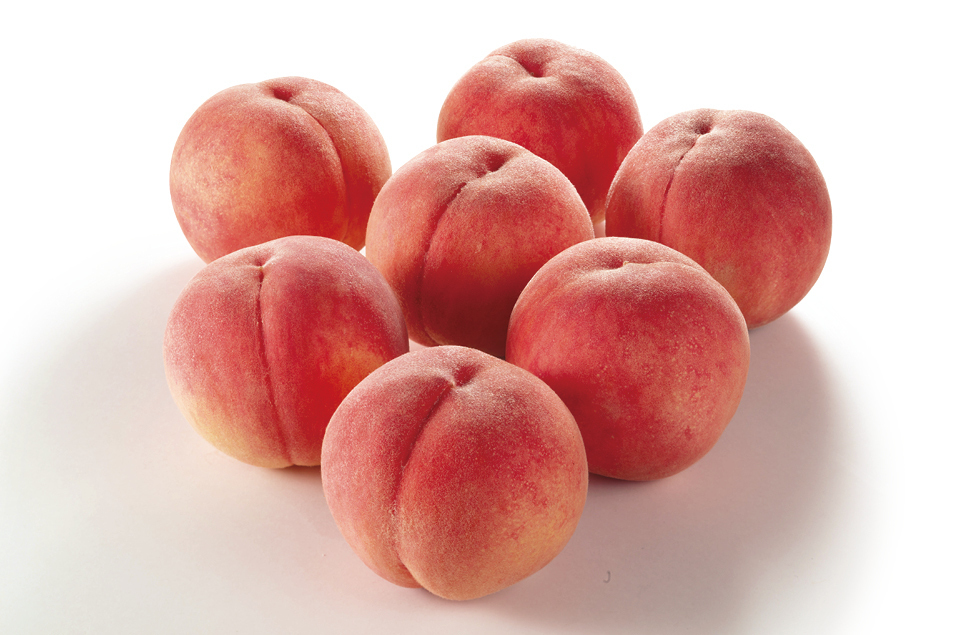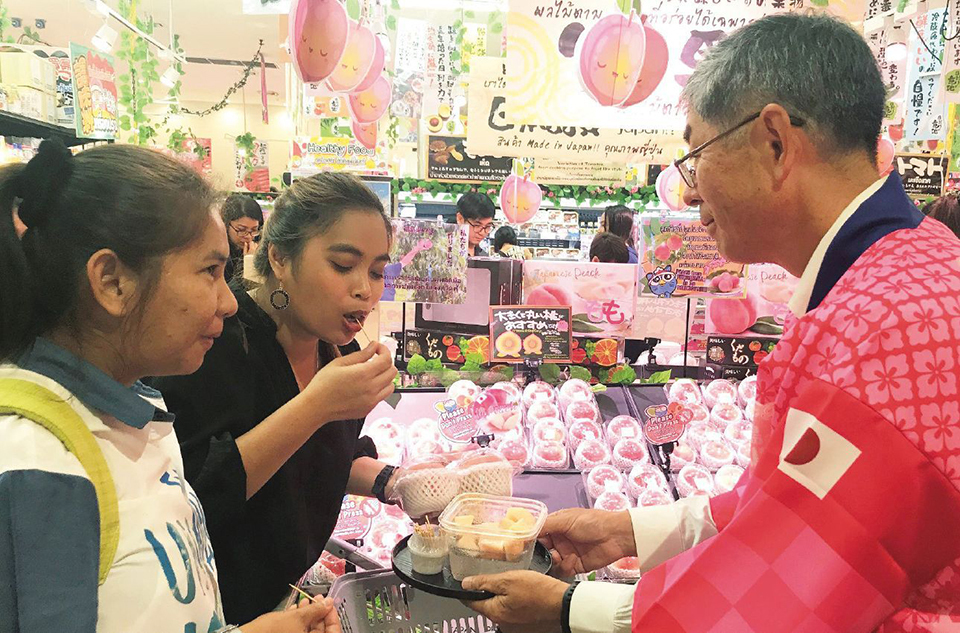High-quality, trusted Japanese foods and agricultural produce are popular overseas. Recently in Southeast Asian countries, Japanese baby formula and peaches are quickly growing in popularity.

The quality of Japanese-made baby formula developed over many years of research on breast milk, weaning and growth development, is trusted worldwide.

Top: Japanese-made baby formula sold in Singapore. The highly soluble powder has earned itself a reputation abroad and market demand in Singapore is therefore rising.
Bottom two: Japanese-made baby formula sold for the Vietnamese market. As well as in tins, the formula also comes in cubes.
Japanese-made baby formula is becoming more popular in emerging countries in Southeast Asia, where rapid urbanization, the rise of the middle class, and women’s social advancement are all progressing at a remarkable rate. Popularity is growing especially in Singapore and Viet Nam. Latest figures showing exports of baby formula from Japan to Singapore are 165% that of the previous year. Additionally, Japan’s total export volume in 2018 was 5,758t, an almost six-fold increase on figures from six years ago. This is largely due to the fact that exports to Viet Nam, which accounts for approximately 60% of exports, are increasing year by year.
Exporting to Viet Nam since 1968, Meiji Co., Ltd. says, “We currently have an office in Hanoi where exports are steadily rising.” The company is expanding its sales overseas of formula in cubes that is becoming popular as there’s no need for measuring. Similarly, Morinaga Milk Industry Co., Ltd., which continues to export baby formula to Viet Nam, says, with an eye on increasing exports of its Japanese-made baby formula, “We are looking to reduce sales costs and obtain halal certification for export to countries where there are many Muslim consumers.” Because of its superior quality and the perceived safety and security that comes with Japanese brands, the baby formula is highly regarded by consumers in countries to which it is imported.

The Akatsuki variety of peach from Fukushima Prefecture. Because the fruits are picked with the aid of light sensors the peaches can be exported with a high sugar content yet retain their firm texture.
Meanwhile, Japanese peaches are also popular in many countries. Peaches produced in Fukushima Prefecture are particularly well-received in Thailand and Malaysia for their taste and quality. In 2017, Fukushima shipped 48t of peaches abroad including these countries. According to the Fukushima Prefecture Trade Promotion Division, this figure exceeds the 2010 level of exports prior to the disastrous Great East Japan Earthquake and therefore plays a significant role in supporting the steady recovery of the Fukushima region.
One of the most significant importers is Thailand, where, the Prefecture and exporters have worked hard to promote Fukushima peaches. Through such efforts, including a visit to the country in 2016 by Fukushima Governor UCHIBORI Masao, export volume has substantially increased. The fruit is currently available at Japanese mass retailers, local department stores and supermarkets. An official from the Fukushima Prefecture Trade Promotion Division reflects, “By having open communication with local buyers actually coming to Fukushima to see the situation for themselves, and also taking samples to Thailand for in-store tasting, we have been able to win consumers’ trust in the produce coming out of Fukushima.”
The main variety of peaches exported is Akatsuki, grown using the prefecture’s advanced cultivation methods. Grown without bags, the fruit is large, glowing in color, and especially sweet. Its slightly firmer texture is said to be received well overseas. For 2020, the prefecture has set a target of exporting 500t of agricultural produce, of which peaches will be a part. “People who eat Fukushima peaches are pleasantly surprised with their great taste and juiciness. The quality is always appreciated, no matter the place, so we’d like people who may be unfamiliar with peaches to be able to experience them.” The Japanese brand has won the confidence of consumers, not only from Japan, but also from other countries around the world through the dedication of farmers and producers. Accordingly, the market is still going strong.

An event held in Thailand by Fukushima Prefecture to promote its peaches. Some stores saw a rise in sales thanks to the sweet, firm peaches from Fukushima.





























